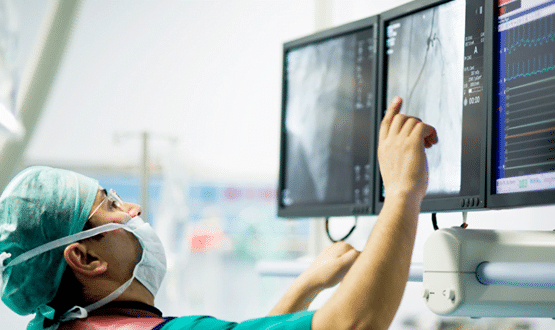Government announces Life Sciences Sector Deal

The government has announced it is partnering with the life sciences sector to ensure the UK is at the forefront of developing medical technologies.
The Life Sciences Sector Deal is a joint strategic vision between the pair with the aim of modernising the industry, as well as giving businesses a boost.
At least 25 global organisations have pledged ‘significant investment’ in the UK which the government hopes will ensure the next wave of technological advancements in medicine will happen in Britain.
Key themes of the Sector Deal include research and technologies of the future.
Under the ‘technologies of the future’ theme, the deal outlines plans to grow the UK’s reputation for pioneering earlier diagnostics.
This will be achieved through an investment from the government’s £4.7 billion Industry Strategy Challenge Fund.
Part of the money will be used to fund an artificial intelligence (AI) programme which aims to develop digital pathology and radiology systems which could eventually be implemented across the NHS.
Health technology company Philips has announced it will be contributing towards the programme.
[themify_box icon=”info” color=”gray”]
Other investments include:
- Merck Sharp and Dohme: MSD to establish life sciences discovery research facility in London, focusing on early bioscience discovery and entrepreneurial innovation
- Johnson and Johnson: One of the Janssen Pharmaceutical Companies of Johnson & Johnson, Janssen Pharmaceutica NV, and the University of Oxford intend to collaborate on novel clinical trial methodologies in the UK; these would include platform trials, focused on mental health disorders such as depression
- GSK and AstraZeneca: Significant investments by GSK and AstraZeneca in initiatives to harness advances in genetic research in the development of medicine
[/themify_box]
“Philips believes that health knows no bounds and a campaign like this, which explores possibilities of accelerating diagnosis and improving accuracy, could have profound implications in disease areas such as cancer where precision diagnosis can be critical to patient survival,” said Philips Electronics UK and Ireland CEO, Neil Meshe.
Another investment announced is two projects initiated by The Medicines Company.
One will be at the University of Oxford where a large multi-national cardiovascular disease clinical trial will be carried out.
While another will be at The Greater Manchester Health and Social Care Partnership where they will carry out research into the understanding, management and economics of cardiovascular disease.
A full list of the investments announced can be seen below.
Health Secretary, Jeremy Hunt, said the deal would mean ‘NHS patients will continue to be at the front of the queue for new treatments’.
He said: “The UK has a huge amount to offer the life sciences sector, combining globally renowned scientific research bases with our world leading NHS which allows innovators to test and refine products at scale.”
The deal follows the themes of Sir John Bell’s Life Sciences Industrial Strategy, a 2017 report which included recommendations to the government that the use of AI in healthcare should be increased.
The announcement of the Sector Deal gathered a lot of reaction on social media. (see tweets below)
We are pleased to hear the announcement on the Life Sciences Sector Deal. We look forward to hearing more about the Health Advanced Research Programme in future phases. Read the publication here: https://t.co/GWr88nqSNu #IndustrialStrategy
— Cancer Research UK Policy (@CRUK_Policy) December 6, 2017
Will the new life sciences sector deal help @GreatNorthCare Record? @AHSN_NENC @NewcastleHosps @NTWNHS https://t.co/61VFqN3M27 @beisgovuk pic.twitter.com/XCY3T2rpu7
— Prof Joe McDonald, Organisational Psychiatrist (@CompareSoftware) December 6, 2017
Government & the life sciences sector have agreed a Sector Deal as part of the #IndustrialStrategy Read the full response from our president https://t.co/4a8xJPaQT0 pic.twitter.com/C4zgIR01qb
— Academy of Medical Sciences (@acmedsci) December 6, 2017





2 Comments
Raytelligence offers a radarsensor which monitor Vital Signs (breathing, heart rate, position and movement) without any wearables. Can also detect ”fall out of bed”.
http://www.raytelligence.com
looks like a sweet setup.
Comments are closed.